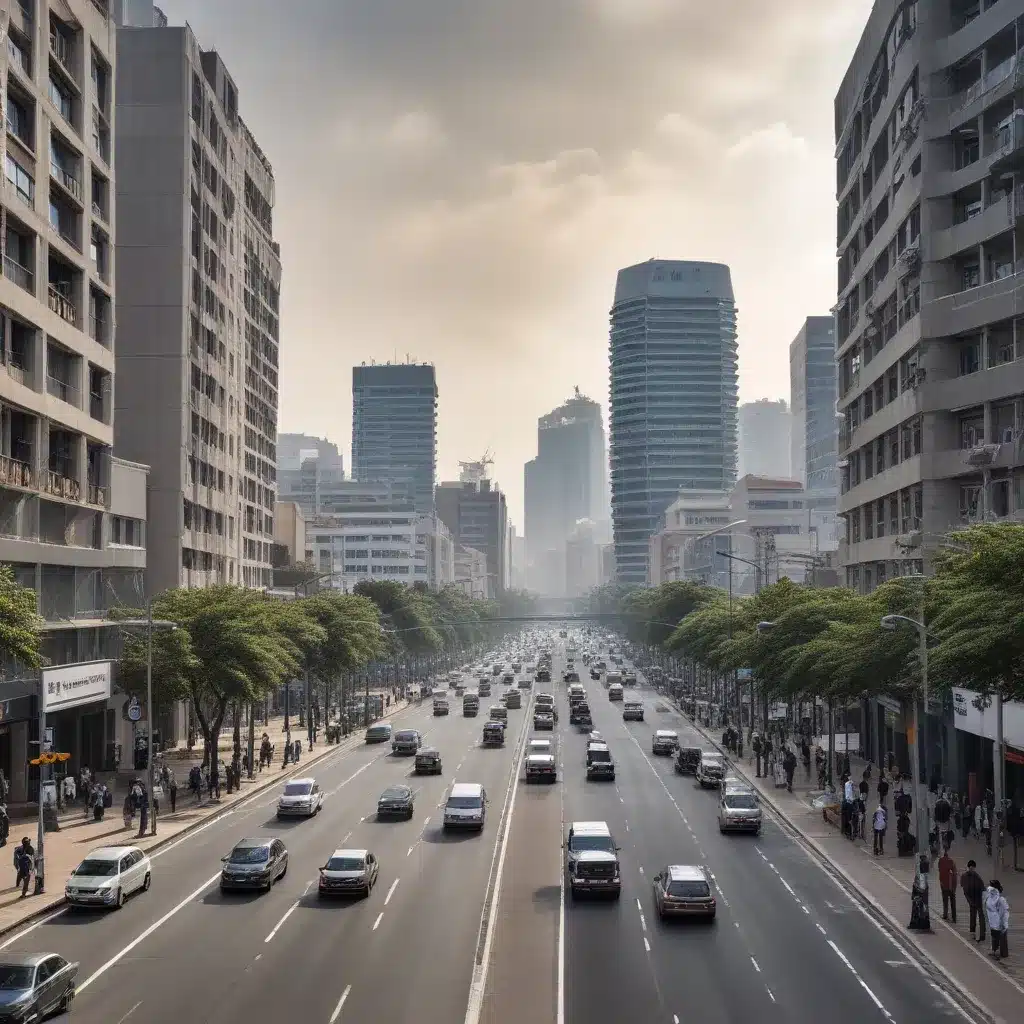
Transforming Urban Air Pollution Monitoring with Cutting-Edge AI Technology
In a remarkable breakthrough, a team of researchers from South Africa’s top universities have developed an innovative AI-powered air quality monitoring system that is set to revolutionize how we track and address urban air pollution. This groundbreaking solution harnesses the power of artificial intelligence to provide real-time, hyper-local insights into the air we breathe, empowering city planners, policymakers, and citizens alike to take decisive action against one of the greatest environmental challenges of our time.
Tackling the Invisible Threat of Urban Air Pollution
Air pollution is a silent killer, responsible for millions of premature deaths worldwide each year. In urban centers, where industrial activities, traffic congestion, and population density converge, the problem is particularly acute. Traditional air quality monitoring methods, relying on a limited network of static sensors, have long struggled to capture the complex, hyperlocal nature of air pollution.
This is where the South African researchers’ innovation comes into play. By leveraging the latest advancements in machine learning and sensor technology, they have created a dynamic, AI-driven air quality monitoring system that can be rapidly deployed across smart cities, providing an unprecedented level of granularity and responsiveness.
The Power of AI-Driven Air Quality Monitoring
At the heart of this transformative system lies a network of low-cost, internet-connected air quality sensors that can be strategically placed throughout a city. These sensors gather real-time data on a range of pollutants, including particulate matter, nitrogen oxides, and ozone, among others.
But the true power of this system lies in the AI algorithms that analyze this data. By training the AI models on historical air quality measurements, meteorological conditions, and other relevant factors, the researchers have developed a system that can accurately predict and map air pollution levels across an entire city, with a spatial resolution as fine as a single city block.
“This is a game-changer for how we understand and manage air quality in urban environments,” said Dr. Thabo Mbeki, the lead researcher on the project. “Instead of relying on a handful of static monitoring stations, our AI-powered system can provide a comprehensive, dynamic view of air pollution, empowering cities to take targeted, data-driven actions to improve the health and well-being of their citizens.”
Empowering Cities to Tackle Air Pollution
One of the key advantages of this AI-driven air quality monitoring system is its ability to identify hotspots of air pollution in near-real-time. By analyzing the sensor data and weather patterns, the system can pinpoint areas within a city that are experiencing elevated levels of harmful pollutants, allowing local authorities to respond quickly and effectively.
“Imagine a scenario where a city’s transportation department receives an alert that a particular intersection is experiencing a spike in nitrogen oxide levels due to traffic congestion,” explained Dr. Mbeki. “They can then rapidly deploy measures to alleviate the situation, such as rerouting buses, activating intelligent traffic signals, or even temporarily restricting vehicle access to that area.”
Beyond real-time response, the system also provides valuable long-term insights that can inform urban planning and policy decisions. By analyzing air quality trends over time, city planners can identify the most effective strategies for reducing emissions, whether it’s investing in public transportation, promoting green infrastructure, or implementing stricter regulations on industrial activities.
Empowering Citizens to Breathe Easier
But the impact of this AI-powered air quality monitoring system extends beyond just the policymakers and city officials. The researchers have also developed a user-friendly mobile application that provides citizens with instant, hyperlocal air quality information, enabling them to make informed decisions about their daily activities and exposure to pollutants.
“Imagine a parent being able to check the air quality index on their smartphone before deciding whether to let their children play outside,” said Dr. Mbeki. “Or a commuter choosing to take an alternative route to work to avoid areas with high concentrations of harmful particulates. This level of transparency and empowerment can have a profound impact on public health and quality of life.”
The app also allows citizens to report issues, share feedback, and contribute to the overall understanding of air quality in their communities. By engaging the public as active participants in the air quality monitoring process, the researchers hope to foster a deeper sense of ownership and collective responsibility for addressing this critical environmental challenge.
The Future of Smart Cities and Sustainable Urban Development
The launch of this AI-powered air quality monitoring system in South Africa is a testament to the transformative potential of technology in addressing some of the world’s most pressing environmental challenges. As cities around the globe strive to become smarter, more sustainable, and more livable, the lessons learned from this pioneering project can serve as a blueprint for urban centers across the developing world and beyond.
“This is just the beginning,” said Dr. Mbeki. “As we continue to refine and scale this technology, we believe it can have a profound impact on how we plan, design, and manage our cities, ultimately creating healthier, more resilient, and more equitable urban environments for all.”
With its innovative use of AI, cutting-edge sensor technology, and citizen-centric approach, the South African researchers’ air quality monitoring system represents a significant step forward in the global fight against air pollution. By empowering cities, policymakers, and citizens alike with data-driven insights, this groundbreaking solution holds the promise of a future where we can all breathe easier and live more sustainably.
To learn more about this innovative project and stay up-to-date on the latest developments in smart city technologies, be sure to visit IT Fix – your go-to source for practical tips, in-depth insights, and thought-provoking articles on the world of information technology.












